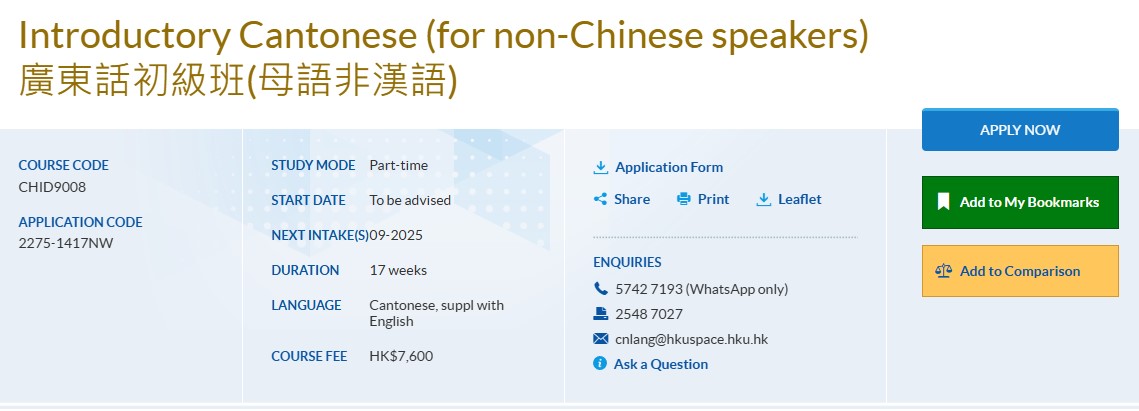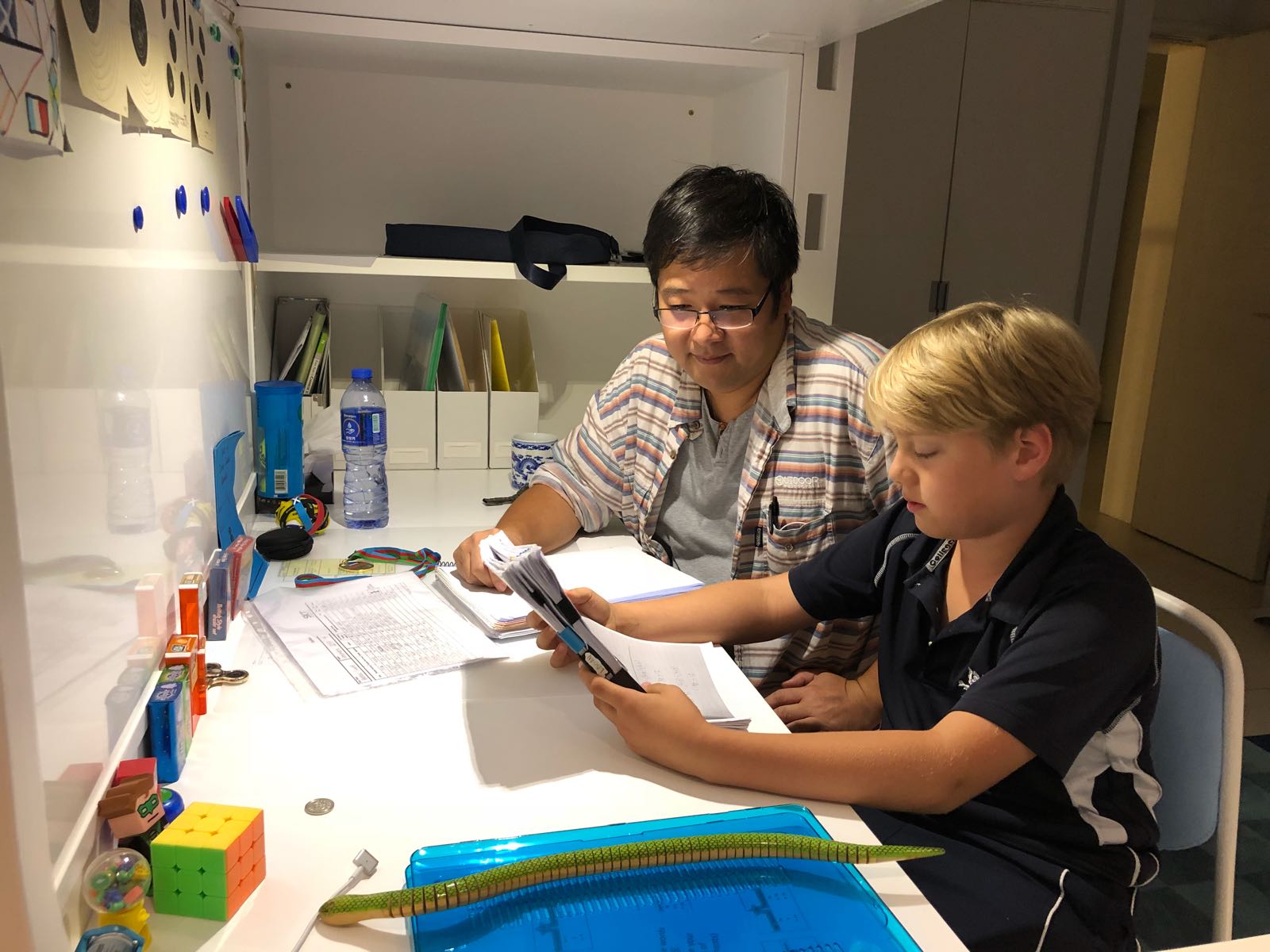Feeling the language gap in Hong Kong? You’re not alone. Many parents navigating life in this vibrant city find themselves wishing they could communicate more effectively in Cantonese – whether it’s chatting with helpers, understanding school notices, or simply ordering milk tea like a local. While our kids often pick it up remarkably fast, tackling a new language as an adult, especially with a busy parent schedule, feels like a whole different challenge.
Finding the right Cantonese lessons for adults in Hong Kong, particularly group classes that fit your life, can feel overwhelming. Where do you start? What are the best options available amidst school runs, activities, and daily life demands? This article cuts through the noise. We’ll explore the different ways you can learn Cantonese in HK, look at resources recommended by fellow parents, and help you figure out the best path forward for your language journey.
Why Learning Cantonese Matters for Parents in HK
Living in Hong Kong offers incredible opportunities, but being able to speak some Cantonese truly enhances the experience. It’s not just about navigating daily transactions. Learning the local language opens doors to deeper connection and understanding.
Think about it:
Connecting with the Community: Simple greetings or basic conversation can build rapport with neighbours, shopkeepers, and service staff.
Supporting Your Children’s Education: Understanding school communication, helping with homework, or talking to local teachers becomes easier.
Communicating with Helpers: Clear communication in Cantonese can significantly improve the working relationship and household harmony.
Navigating Daily Life: From ordering at a local restaurant to asking for directions in a less touristy area, basic Cantonese makes life smoother and more enjoyable.
Cultural Immersion: Engaging with the language is a powerful way to connect with Hong Kong’s rich culture and heritage.
Taking the step to learn Cantonese is an investment in your life here. It empowers you and enriches your family’s experience.
Your Options for Learning Cantonese as an Adult
There isn’t a single “best” way to learn Cantonese; the ideal method depends entirely on your goals, learning style, time commitment, and budget. Hong Kong offers a variety of options catering to adults.
Group Classes: Learning Together
Group classes are often a popular starting point, offering a structured environment and the chance to practice with peers. This format can be cost-effective and provides a fixed schedule, which some learners find motivating. You interact with other students, practise dialogues, and learn from shared questions and mistakes. However, group classes require commitment to specific times and may move at a pace that feels either too fast or too slow depending on your individual needs.
Individual Tutoring: Tailored Learning
One-on-one lessons offer maximum flexibility and personalization. You set the schedule (often with more flexibility than group classes), and the lessons are entirely tailored to your pace and specific learning goals – whether that’s mastering survival phrases, focusing on tones, or understanding complex grammar. The primary drawback is usually the higher cost compared to group options. For parents juggling unpredictable schedules, however, this flexibility can be a game-changer.
Online & Self-Study: Flexibility at Your Fingertips
The digital age provides abundant opportunities for learning Cantonese from home or on the go. Online courses, language learning apps, and self-study materials offer incredible flexibility. You can often learn at your own pace, fitting lessons into small pockets of time during the day or evening. This requires a good degree of self-discipline and may offer less direct speaking practice unless the course includes online tutoring or language exchange components. Self-study is excellent for building vocabulary and understanding grammar basics but may need supplementing for fluency.
Key Factors to Consider When Choosing a Cantonese Course
With various formats and providers available, how do you decide? Ask yourself these critical questions:
Tonal Systems: Yale vs. Jyutping
This is a crucial point, especially for beginners. Cantonese is a tonal language, and understanding the tones is essential. Pinyin systems help learners pronounce words. The two most common systems you’ll encounter are Yale and Jyutping.
Yale: Developed at Yale University, this system is often used in textbooks and courses focusing on spoken Cantonese. It’s generally considered easier for beginners to pick up quickly for pronunciation, although its representation of tones can be less precise than Jyutping.
Jyutping: Developed in Hong Kong, Jyutping is a more linguistically accurate system. It’s particularly useful if you plan to type Cantonese characters using a computer or phone, as it aligns well with input methods. While potentially having a slightly steeper initial learning curve for pronunciation compared to Yale for some, it provides a solid phonetic foundation.
Neither system is inherently “better”; it depends on your primary goal. If you focus solely on speaking and quick pronunciation, Yale might be appealing. If you foresee wanting to type Cantonese or desire a more precise phonetic representation, Jyutping could be preferable. Some schools offer both or can guide you. [Source Needed]
Time Commitment & Flexibility
Let’s be realistic: parents are busy. Evaluate how much dedicated time you can genuinely commit each week. Does a fixed schedule work, or do you need the flexibility of individual lessons or self-paced online study? Be honest with yourself to avoid frustration later. Finding an option that allows you to learn consistently, even in short bursts, is key.
Learning Goals: Survival vs. Fluency
What do you want to achieve? Do you need basic phrases for daily interactions (a “survival” level)? Or are you aiming for conversational fluency to discuss a wider range of topics? Different courses cater to different goals. A survival course might teach specific scenarios (ordering food, taking a taxi), while a comprehensive course will build grammar and vocabulary systematically for broader communication.
Location & Accessibility
If you opt for in-person classes, consider the location. Is it convenient to your home, work, or your children’s school? Traffic and travel time in Hong Kong can be significant. Online options remove this barrier entirely, offering access from anywhere.
Budget
Course costs vary widely based on format, institution, and duration. Group classes are typically the most budget-friendly per hour, while individual lessons are the most expensive. Online resources can range from free apps to subscription services or one-off course fees. Determine what you can comfortably afford.
Exploring Recommended Cantonese Resources in Hong Kong
Based on discussions within the parent community and general availability, here are some types of resources and specific mentions that come up:
HKU Space
As the continuing education arm of the University of Hong Kong, HKU Space is a well-regarded institution offering structured language courses. They often have introductory Cantonese courses suitable for beginners. This is a popular choice for those seeking a traditional classroom environment with qualified instructors and a clear curriculum.
https://hkuspace.hku.hk/course/introductory-cantonese-for-non-chinese-speakers

Hong Kong Language School (HKLS)
Mentioned for being helpful and responsive, HKLS offers both group and individual classes. The flexibility to potentially switch formats based on evolving needs (like a change in schedule affecting group class commitment) can be a significant advantage for parents. Testimonials suggest learners can gain practical knowledge relatively quickly here.
Cracking Cantonese
This resource offers online, self-paced lessons developed by an individual teacher with a specific approach. It promises to build practical fluency for daily life. Online platforms like this can be ideal for learners who prefer to work independently and structure their study time around other commitments.
https://www.crackingcantonese.com/

Sai Kung Tutors
For those living in or near the Sai Kung area, finding local options is a huge plus. Sai Kung Tutors provides Cantonese lessons, potentially offering the convenience of a shorter commute for residents in that specific district. They offer both group and one-on-one formats, catering to different preferences.
https://www.saikungtutors.com/

Other Resources
Sometimes, the best recommendations come through personal networks. Mentions of specific instructors or “survival” courses in certain areas (like the Wan Chai survival Cantonese class potentially referred to) highlight that informal recommendations are also valuable. Websites like HamBaangLaang are known for providing learning materials, which can be excellent supplements to structured lessons or form the basis of a self-study plan. Exploring these community-based suggestions, perhaps by asking for more details within trusted groups, can uncover hidden gems.
Tips for Success on Your Cantonese Learning Journey
Committing to learning a language as an adult requires dedication, but it’s entirely achievable! Here are a few tips to help you succeed:
Set Realistic Goals: Don’t aim for perfect fluency overnight. Focus on mastering a few key phrases or tones each week.
Integrate Learning into Daily Life: Listen to Cantonese radio or podcasts, try to identify characters on signs, or practice simple phrases with willing speakers.
Practice Consistently: Even 15-20 minutes daily is more effective than one long session per week. Use waiting times, commutes, or quiet moments at home.
Don’t Fear Mistakes: Making errors is a natural part of learning. Most local speakers appreciate the effort you’re making.
Find a Practice Partner: If your course doesn’t offer much interaction, look for language exchange partners online or within your community.
Focus on Tones: Cantonese tones are critical. Spend dedicated time practising and listening to differentiate them.
Learning Cantonese is a journey, not a race. Celebrate small victories along the way!
Conclusion
Navigating life in Hong Kong as a parent is a busy adventure, but adding Cantonese to your skill set can make it even more rewarding. Whether you prefer the structure of group classes, the flexibility of individual tutoring, or the convenience of online learning, options exist to fit your needs and schedule. Consider your goals, time, budget, and preferred learning style, and don’t hesitate to explore resources like HKU Space, HKLS, Cracking Cantonese, or Sai Kung Tutors, or seek recommendations from fellow parents. Taking the first step is often the hardest part. Good luck on your Cantonese learning journey – 加油! (gaa¹ jau⁴! – Keep it up!)
Frequently Asked Questions (FAQ)
There isn’t one “best” course, as it depends on your needs. HKU Space and HKLS are popular choices for structured group or individual lessons. Online options like Cracking Cantonese offer flexibility. Consider your budget, schedule, and whether you prefer in-person interaction or self-paced study.
Yale is often easier for quick pronunciation learning and common in older textbooks for spoken Cantonese. Jyutping is more linguistically precise, better for understanding phonetics, and useful for typing Cantonese characters. Choose based on your primary goal: quick speaking ability (Yale might be slightly favoured by some) vs. a more precise system useful for reading/writing input (Jyutping). Many courses focus on one or the other, or teach both.
This varies greatly depending on your language background, study time, and practice opportunities. Dedicated study for a few months can typically get you to a basic “survival” level (greetings, ordering, asking simple questions). Achieving conversational fluency takes significantly longer, often years of consistent practice.
Yes, online courses can be very effective, especially for vocabulary, grammar, and pronunciation practice. Their effectiveness depends heavily on the course quality, your self-discipline, and whether you supplement with speaking practice (e.g., online tutors, language exchange).
Absolutely! While full fluency with limited time is challenging, learning foundational phrases and survival Cantonese is very achievable. Focus on options with high flexibility, such as individual online tutoring, self-paced online courses like Cracking Cantonese, or integrating short bursts of learning (15-20 mins) into your daily routine. Consistency is more important than long, infrequent sessions.




